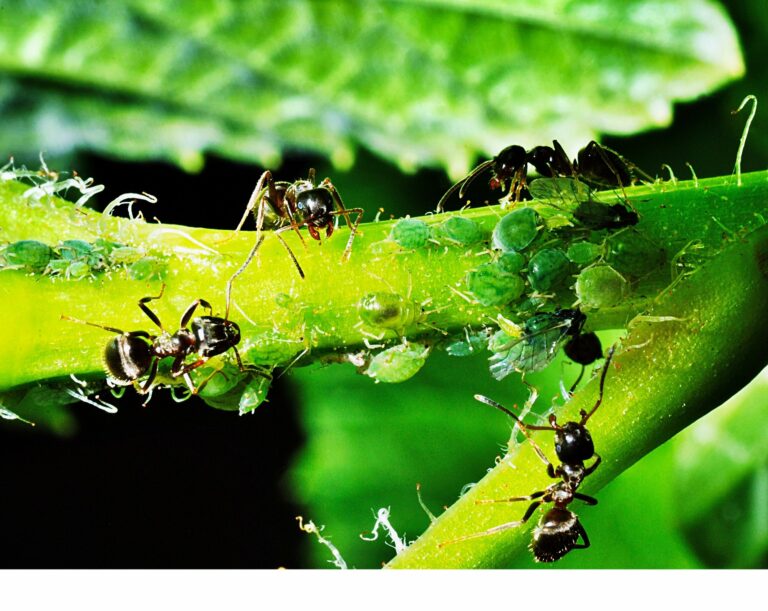Could Aphids be the Source of Your Ant Problem?
Published: January 17, 2024

If you've been dealing with an ant problem in your home or garden, you might be surprised to learn that aphids (m. yomogicola) could be the underlying cause. These tiny insects, commonly found on plants like corn plants, can attract ants due to their sweet honeydew secretions. Most Aphids undergo changes throughout the year including their color, where they will be a green morph in the spring, while the red morph is more common in the fall.

The Relationship Between Aphids and Ants
Nobody knows for certain when the first mutualistic contact took place between ants and aphids. Aphids are known for their ability to reproduce rapidly and feed on plant sap. While they may seem harmless on their own, they can become a nuisance when they infest your plants and shrubs. As they feed, aphids produce a sugary substance called honeydew. This substance is highly attractive to ants, who will go to great lengths to protect and harvest it.
How Ants Benefit from Aphids
Ants have developed a special symbiotic relationship with aphids. They feed on the honeydew produced by aphids but also provide stronger protection against predators. The Ants are essentially the farmers of the aphids.
How Aphids Benefit from Ants
Ants will aggressively defend aphid colonies from natural enemies such as ladybugs and lacewings, ensuring a steady source of food for themselves. Ants will show increased aggressiveness towards the aphids predators, which provides them with stronger protection.
The Role of Aphids in Attracting Ants
When ants discover an aphid-infested plant, they will establish trails between their nest and the location of the colony. This allows them easy access to the honeydew produced by the aphids. Furthermore, some studies suggest that ants may even stimulate increased honeydew production by tapping or stroking the backs of aphids.
Dealing with an Aphid-Induced Ant Problem
To effectively address an ant problem caused by aphids, it is important to tackle both pests simultaneously. Here are some steps you can take:
- Identify and treat the aphid infestation: Start by identifying which plants are infested with aphids. You can use organic insecticidal soaps or neem oil sprays to control their population.
- Remove ant trails: Regularly clean and remove any ant trails leading to the aphid-infested plants. This disrupts their access to honeydew and discourages their presence.
- Introduce natural predators: Consider introducing natural predators of aphids, such as ladybugs or lacewings, to help keep their population in check. These beneficial insects can help control both aphids and ants.
- Seek professional pest control assistance: If the infestation persists or becomes overwhelming, it may be necessary to seek the help of a professional pest control service. They have the expertise and tools to effectively eliminate both aphids and ants from your property.
By addressing the underlying aphid problem, you can significantly reduce ant activity in your home or garden. Remember, prevention is key in maintaining a pest-free environment.
If you're struggling with an ant problem caused by aphids, don't hesitate to reach out to us at All U Need Pest Control. Our team of experts is dedicated to providing effective solutions that are safe for you, your family, and the environment.